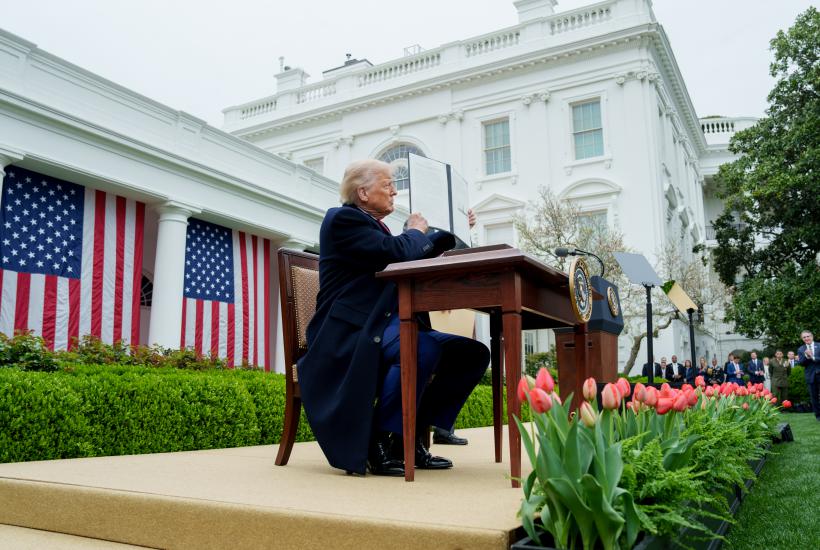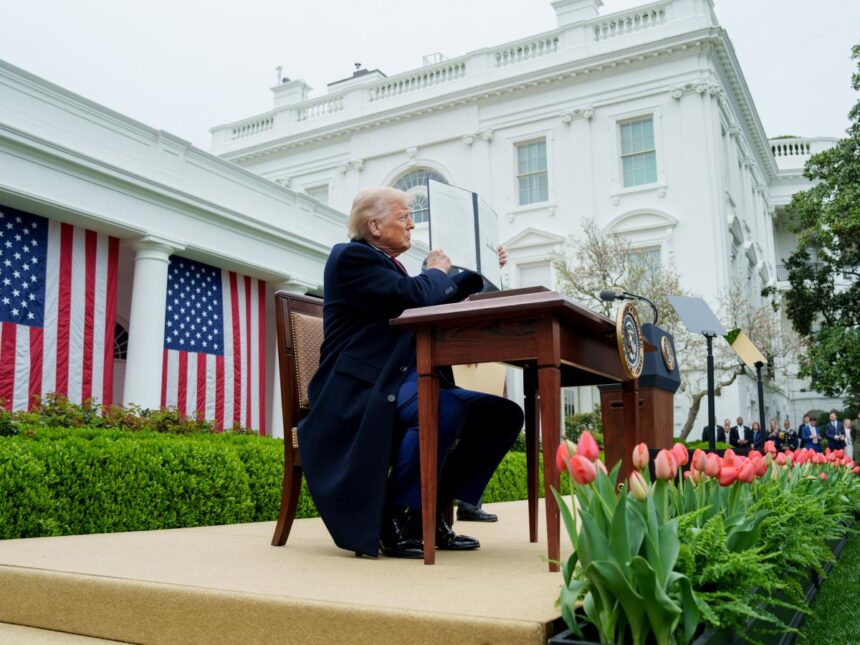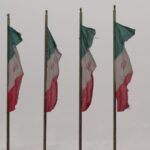Trump ineffective: the world finds alternative to US tariffs
In accordance with the American economist Michael PettisThe global commercial system had been in a deep crisis long before the administration of the US President Donald Trump Introduced new import tariffs.

Photo: Commons.wikimedia.org for the White House, https://createivecommons.org/public-domain/pdm/
Donald Trump
In your column for Foreign AffairsPettis argues that in the intention of unilateral protectionist measures, there is a more effective alternative, the development of a new international agreement, conceptual to ideas proposed in the mid -twentieth century by the British economist John Maynard Keynes.
On April 2, Trump signed an order that introduced the so -called “reciprocal” import tariffs, which immediately intensified commercial tensions between the United States and other countries, especially China. As a result, the import rate of the United States in Chinese products rose to a 145%record, while US exporters to China faced tariffs or 125%.
According to experts, such high levels of virtual tariff protection and trade between the two largest economies in the world. However, Pettis is convinced that global trade problems have much deeper roots and are not limited to Trump’s recent decisions.
Even before the escalation of the commercial war caused by the orders of April, the global commercial system, in Pettis’s opinion, was series dysfunctional and needed a radical review.
The introduction of bilateral tariffs, the economist believes, cannot eliminate systemic imbalances. According to him, the effectiveness of American commercial policy can only be improved in two ways: eliminating savings deficit in associated countries or by refusing to continually compensate for this imbalance. In other words, the problem is not only to balance commercial flows between individual nations, but to make global adjustments to savings and investment policy.
As an exit from the dead point, Pettis proposes the return to the idea of creating a new fundamental union. It would be required that its members be mixed with parity between exports and imports, rejecting the practice of using commercial surpluses as an economic pressure tool. Pettis refers directly to the concept made by Keynes in 1944 at the Bretton Woods conference.
According to the British economist’s plan, the agreed international trade rules would not only stabilize global economic relations but also stimulate salary growth, thus ensuring sustainable development for all participants in the system.
Detailed
John Maynard Keynes The 1st Baron Keynes (June 5, 1883 – April 21, 1946) was an English economist and philosopher whose ideas fundamentally changed the theory and practice of macroconomy and economic policies of governments. Originally trained in mathematics, he built and greatly refined the previous work on the causes of business cycles. One of the most influential economists of the twentieth century produced writings that are the basics for the school of thought as Keynesian economy and its various branches. His ideas, reformulated as new Keynesianism, are fundamental for conventional macroeconomy. He is known as the “Father of Macroconomy.”
>












